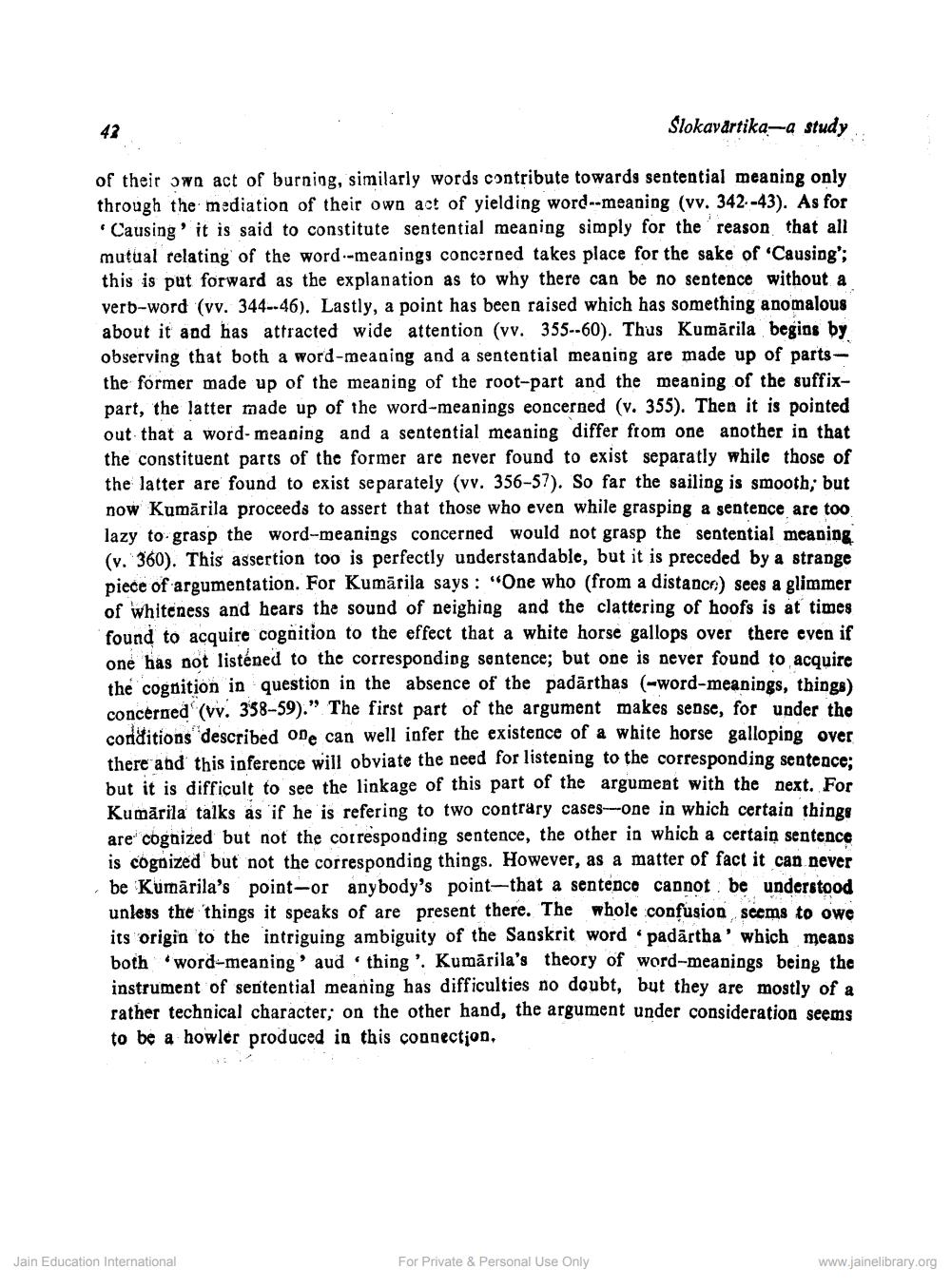________________
42
Slokavårtika—a study
of their own act of burning, similarly words contribute towards sentential meaning only through the mediation of their own act of yielding word--meaning (vv. 342-43). As for
Causing' it is said to constitute sentential meaning simply for the reason that all mutual relating of the word.-meanings concerned takes place for the sake of 'Causing'; this is put forward as the explanation as to why there can be no sentence without a verb-word (vv. 344.46). Lastly, a point has been raised which has something anomalous about it and has attracted wide attention (vv. 355--60). Thus Kumārila begins by observing that both a word-meaning and a sentential meaning are made up of parts - the former made up of the meaning of the root-part and the meaning of the suffixpart, the latter made up of the word-meanings eoncerned (v. 355). Then it is pointed out that a word- meaning and a sentential meaning differ from one another in that the constituent parts of the former are never found to exist separatly while those of the latter are found to exist separately (vv. 356-57). So far the sailing is smooth; but now Kumārila proceeds to assert that those who even while grasping a sentence are too lazy to grasp the word-meanings concerned would not grasp the sentential meaning (v. 360). This assertion too is perfectly understandable, but it is preceded by a strange piece of argumentation. For Kumārila says: "One who (from a distanco) sees a glimmer of whiteness and hears the sound of neighing and the clattering of hoofs is at times found to acquire cognition to the effect that a white horse gallops over there even if one has not listened to the corresponding sentence; but one is never found to acquire the cognition in question in the absence of the padārthas (-word-meanings, things) concerned (vv. 358-59)." The first part of the argument makes sense, for under the conditions described one can well infer the existence of a white horse galloping over there and this inference will obviate the need for listening to the corresponding sentence: but it is difficult to see the linkage of this part of the argument with the next. For Kumārila talks as if he is refering to two contrary cases--one in which certain thinge are cognized but not the corresponding sentence, the other in which a certain sentence is cognized but not the corresponding things. However, as a matter of fact it can never be Kumarila's point-or anybody's point-that a sentence cannot be understood unless the things it speaks of are present there. The whole confusion seems to owe its origin to the intriguing ambiguity of the Sanskrit word padārtha' which means both.word-meaning' aud thing'. Kumārila's theory of word-meanings being the instrument of sentential meaning has difficulties no doubt, but they are mostly of a rather technical character, on the other hand, the argument under consideration seems to be a howler produced in this congection,
Jain Education International
For Private & Personal Use Only
www.jainelibrary.org




